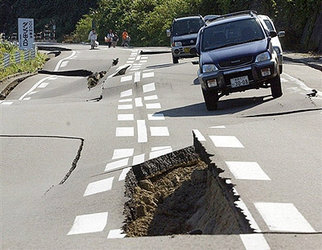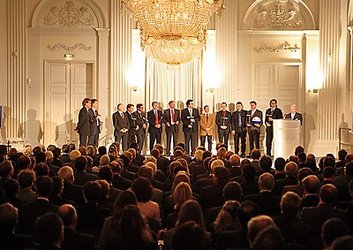Zaharia Dragos wins Galileo Masters 2007
French inventor Zaharia Dragos has been awarded this year’s Galileo Masters 2007 in the European Satellite Navigation Competition for his novel scheme to secure financial data transmissions against fraud.
His winning proposal is to combine the very precise time signal of the European satellite navigation system Galileo, with conventional encryption algorithms, to make the coding of financial transactions more difficult to break.
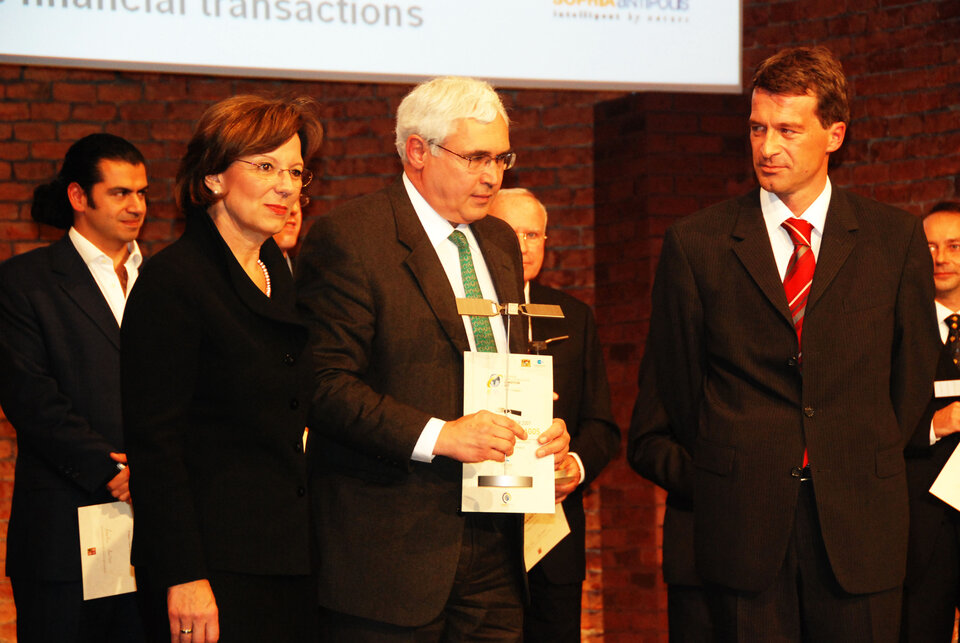
This responds to the growing need to provide stronger algorithms to safeguard data communication on the internet and closed data networks. According to estimates, the frequent attacks against currently used algorithms double in power each year.
For this idea Zaharia Dragos received the coveted Galileo Masters 2007 award and a cash prize of €10 000. In addition, he will be given the opportunity to further develop his idea into a viable business with support from experts at the Sophia Antipolis incubation centre close to Nice in France.
European Satellite Navigation Competition

The European Satellite Navigation Competition objective is to find new ideas for commercially viable global navigation satellite system applications.
Now in its fourth year, the competition has grown to become one of Europe’s largest networks for satellite navigation down-stream applications and covers 11 high-tech regions in Europe. This year 258 entries were received; double that of previous years. Next year’s competition could be even bigger as interest has been expressed by more regions, from both within and outside Europe, including Queensland in Australia and Taiwan.

The European Satellite Navigation Competition is organised by the Anwendungszentrum GmbH Oberpfaffenhofen and the Munich ITC trade fair SYSTEMS. The competition is run under the patronage of the Bavarian Ministry of Economic Affairs, Infrastructure, Transport and Technology, and supported by the German Aerospace Center (DLR) and ESA through its Technology Transfer Programme.
For the first time this year, three sponsored special topic prizes were given by sponsors T-Systems, the DHL Innovation Center and the German Centre for Aerospace (Deutsche Zentrum für Luft-und Raumfahrt, DLR). In addition the regional winners were appointed.
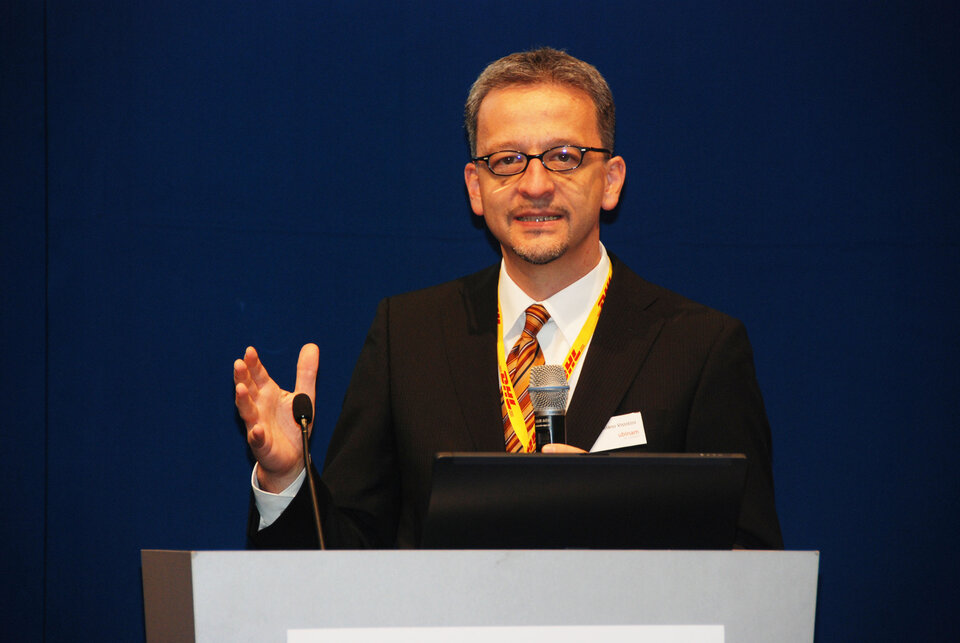
DHL special topic prize
The winner was Giuliano Visintini from the region Bavaria, Germany. He proposed a web-based approach to improve current postal delivery services by actively involving customers. This uses satellite navigation to facilitate the handling of mail and its delivery to temporary addresses and remote locations.
T-Systems special topic prize
Won by Thierry Fargas from the region Sophia Antipolis, Nice in France, for his NodboxSafeRoad - a system to improve road safety by analyzing the immediate potential risks for drivers. The system takes into consideration factors such as driver behaviour, vehicle speed, rolling conditions, road features, existing known dangers and weather conditions to predict possible risks.

DLR/GATE special topic prize
Colin Wilson and Lee Masey from the region Sophia Antipolis, Nice in France, won the DLR/Gate prize with their proposal for a landmine archive and retrieval system (LARS) which integrates radar imaging and GPS/Galileo coordinates with conventional map data to locate, identify and map hidden landmines.
Regional winners
Baden-Württemberg (Germany)
Winner: Gerhard Bernot, Bernot Information Technology
Idea: Galileo Postman helps to optimize a postman’s daily routine by using satellite navigation data, combined with geographical maps, to improve his or her postal route. This system also makes it easier to replace postal workers when ill and to train new staff.
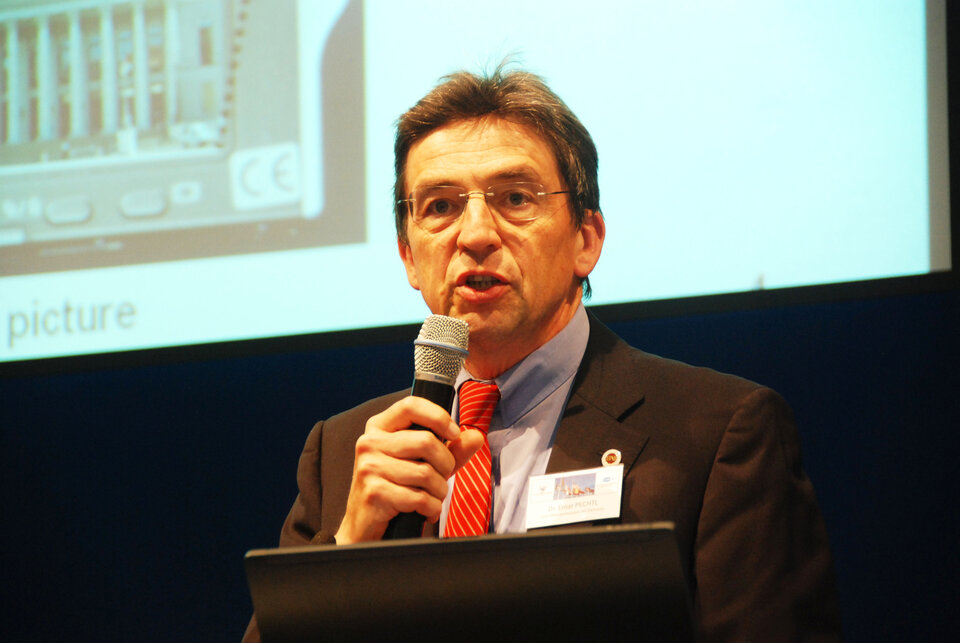
Bavaria (Germany)
Winners: Ernst Pechtl and Hans Geiger, superWise Technologies AG
Idea: eye-Phone is an advanced object recognition and knowledge tool which can identify any object in an image, whether architectural, landscape, art, animal or plant, and then combine this information with GPS/Galileo positioning data to provide information from Internet databases about the selected object.
Göteborg (Sweden)
Winner: Erik Steinmetz
Idea: Mobile phone coverage maps using GPS/Galileo positioning data, geographical maps and known mobile service coverage footprints to help hikers in areas with poor mobile phone coverage find the shortest and easiest route to mobile coverage.
Hessen (Germany)
Winner: Gerhard Guettler
Idea: Galileo Ecodrive is a system to reduce a vehicle’s fuel consumption by combining known information on a road’s geodetic height profile with GPS/Galileo navigation data. The system uses actual and prospective data of a car’s movement to control and optimize the loading of the battery, operation of auxiliary devices, and motor and gearbox management.
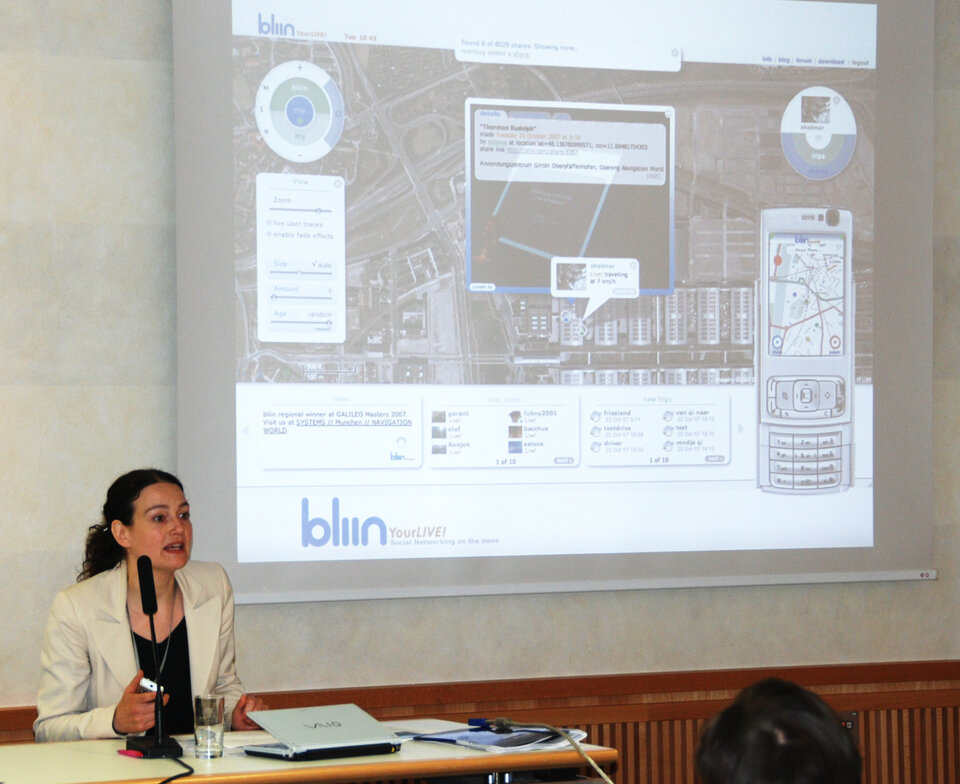
South Holland (the Netherlands)
Winner: Selene Kolman, bliin BV
Idea: bliin YourLIVE is a GPS-enhanced mobile and online social network. It enables users to track, locate and follow friends and colleagues on a map in real-time. The system also supports uploading and sharing of geo-tagged information, such as photos, videos, audio and text.
Lombardy (Italy)
Winner: Amedeo Lepore, Merlino Technology s.r.l.
Idea: ASCLEPIO – a personal health and safety assistant to localise and monitor high-risk patients, based on data from Galileo, GPS or RFID signals. In an emergency health data can be transmitted to a control centre and the nearest rescue team alerted.
Madrid (Spain)
Winner: Rafael Olmedo Soler, INTA/Geoteam
Idea: A volumetric navigation system which combines position, navigation and volume information to provide assistance for managing and conducting surface vehicle movement, e.g. for aircraft and other vehicles in airports. The volume information defines a security area around each vehicle to facilitate movement and avoid collisions.

Prague (Czech Republic)
Winners: Andreas Zachariah and Nick Burch, Carbon Hero
Idea: Carbon Hero is a mobile-based application to give users their personal environmental carbon dioxide ‘footprint’ when travelling. With almost no user input, Carbon Hero with its specialist database and algorithm, determines the varying environmental impact created by different forms of transport.
United Kingdom and Ireland:
Winner: Eric Goodyer, De Montfort University
Idea: MobiAssist supports independent lifestyles through mobile telecare of citizens at risk, such as the old and disabled, by enabling them to move around easily in cities, for example, so that they are not constricted to their homes. Physiological sensors monitored through this service range from wearing a wristband to observe a user’s heart rate to a glove containing an oximeter and a level sensor to detect a fall.
About ESA's Technology Transfer Programme Office (TTPO)
The main mission of the ESA TTPO is to facilitate the use of space technology and space systems for non-space applications and to further demonstrate the benefit of the European space programme to European citizens. The TTPO is responsible for defining the overall approach and strategy for the transfer of space technologies including the incubation of start-up companies and their funding.
For more information, please contact:
Technology Transfer Programme
European Space Agency – ESTEC
Keplerlaan 1, P.O. BOX 299, 2200 AG, Noordwijk
The Netherlands
Office: +31 (0) 71 565 3910
Fax: +31 (0) 71 565 6635
Email: ttp @ esa.int
Web: http://www.esa.int/ttp





